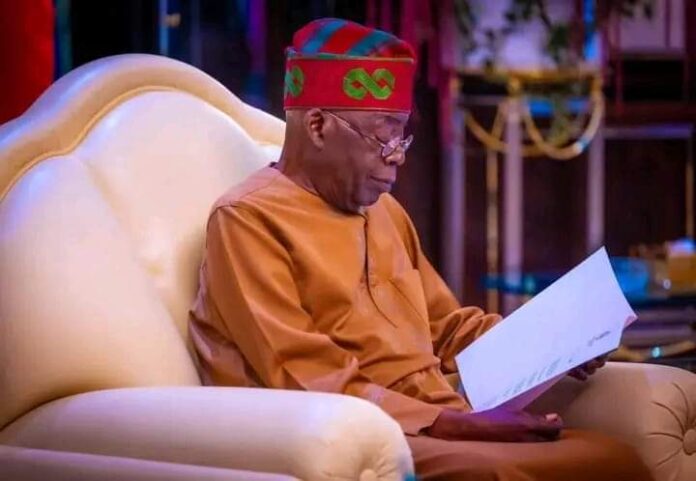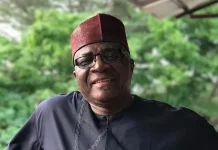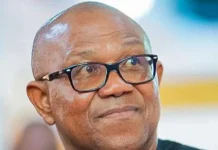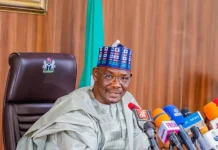The President Bola Tinubu’s selection of 48 ministers and 20 special advisers is pricey and callous in the midst of economic turmoil and widespread poverty. While the public is expected to put up with record inflation and general suffering, it is unfortunate that the President has not been able to control the cost of top-down government spending.
A bloated cabinet is unusual for an administration dealing with mounting public debt estimated by the Debt Management Office to be 37% of GDP, rising headline inflation estimated by the Debt Management Office to 24.08% in July, and naira devaluation.
Tinubu’s cabinet outnumbers each of his four predecessors from the Fourth Republic, even though the constitution restricts the president to a minimum of 36 by requiring that each state of the federation have at least one minister.
He promised to choose a cabinet with a majority of technocrats, but political considerations clearly prevailed. Instead, the upcoming Federal Executive Council is heavily populated by politicians, with no fewer than nine former state governors and other recycled politicians, many of whom have questionable administrative value and a history of subpar performance in public office.
What’s more upsetting is that three of the ex-governors are the subject of criminal investigations for allegedly embezzling state public cash. One of them worked as a bagman for the late Sani Abacha, a terrible military leader whose stolen billions Nigeria is now recovering piecemeal. All of this dims hopes for cost-cutting, efficient, responsive government, or a resurgence of the anti-corruption campaign.
In addition to his bluster, Tinubu has not yet shown a significant desire to start drastic cost-cutting initiatives, and he is on course to have the biggest federal cabinet in Nigerian history. It is not suitable at this moment to appoint acolytes and political allies.
The governors of the states and the National Assembly are worse. The Senate is spending N40 billion on themselves to get SUVs that can withstand bullets. Tajudeen Abbas, the Speaker of the House of Representatives, purportedly wants to spend N9.5 billion to “renovate” certain buildings in Kaduna State, while Godswill Akpabio, the Senate President, allegedly ordered four high-end models. Without taking into account their declining earnings or mounting debt, governors are amassing armies of staff members.
At a time when common Nigerians are making sacrifices, it is wrong to spend limited resources on luxury and a big government. It keeps inefficiency and corruption alive. Large cabinets are expensive and wasteful in the way they coordinate and make decisions. Additional salaries, offices, personnel, and resources are also involved. However, fewer members with the requisite knowledge and dedication, as well as a president with a clear goal, will make all the difference in establishing effective governance.
Governments all across the world are embracing lean bureaucracy to implement programmes with the least amount of expense and most impact. In order to lower operating expenses, India used e-governance. This increased feedback from the public, decreased waste and corruption, and improved citizen participation.
The Lord Chancellor is paid separately, bringing the total number of paid cabinet members in the United Kingdom to 21, plus. Due to reforms implemented in 2010, the government’s civil service was smaller and less expensive, which led to significant cost savings and increased productivity. To decrease overlap and redundancy in its federal programmes and services, Canada has adopted a “whole-of-government” strategy.
The President should balance having a functional cabinet that represents a variety of interests with a size that reduces expenses and enables effective decision-making and policy implementation. He needs to be understanding of the people’s suffering and the country’s tight budget.
Join Television Nigerian Whatsapp Now
Join Television Nigerian Facebook Now
Join Television Nigerian Twitter Now
Join Television Nigerian YouTUbe Now





